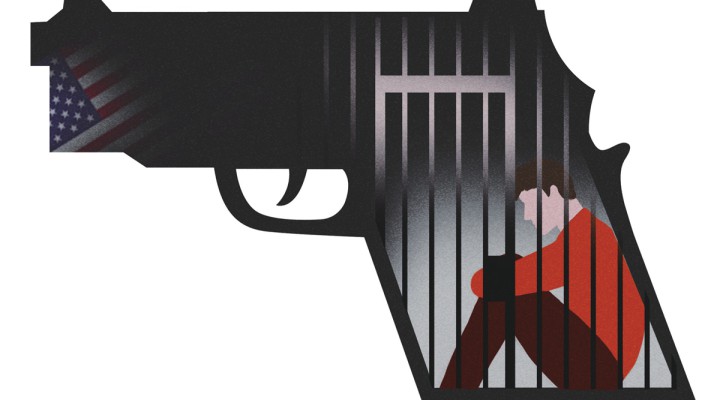Bangkok shooting a symptom of imported dehumanization and violence

A recent mall shooting in downtown Bangkok leaving two dead was particularly shocking. Mass shootings are relatively rare in Thailand despite the Southeast Asian Kingdom’s high rate of private firearms ownership.
However, this is the third American-style mass shooting in recent years.
The suspect, a 14-year-old boy, was put into custody wearing a hat with a prominent American flag on it. Media reports claim the boy suffered from mental illness and was supposed to be taking prescribed medication. It also became known that he indulged in a growing obsession with violence, particularly on unrestricted social media platforms. Before the shooting, he had posted videos of himself training with a firearm at a firing range.
It is a pattern that has already become all too familiar in the US. Now it appears a segment of Thai society is being infected by this same brand of senseless violence.
All signs point to a mentally ill youth whose condition was compounded by what he consumed and posted on social media, along with the American-style games and media he appears to have been absorbed by. However, much of the Thai media and Thai government seem to be reflexively focusing on “gun control” and increased security at public places – treating the symptoms rather than the source of the violence.
For those who have lived in Thailand over the last two decades, they must have seen a lot of changes. Many of these changes have been very positive. Some of these changes are negative, and are clearly imported from abroad.
Western-style fast food has bloated the waistlines of Thais in ways unrecognizable, compared with just 10 years ago. The youth are increasingly covered in Western-style tattoos and have adopted a distinctively Western, highly self-centered perspective relative to Thailand’s traditions of hierarchy, respect for one’s elders, community, family and one’s personal sacrifice for the collective good.
In many ways, these changes are shaping certain segments of the population in a way that looks more American than Thai, and these changes come with many of the chronic problems that undermine social stability in the US.
One of America’s biggest problems is its toxic culture of dehumanization and violence. It is something that is purveyed through not only the media — through games, movies and TV series — but also through acts of very real violence, including mass shootings, carried out across the US at alarmingly frequent intervals.
Beyond this, America’s toxic culture of dehumanization and violence is expressed through US foreign policy. The US maintains hundreds of military bases abroad including in nations it illegally occupies, and has waged wars of aggression against nations from North Africa to Central Asia and everywhere in between.
The American public and those who consume US media are told that America holds primacy over the world and that American interests come first, even at the expense of other nations. This foreign policy expressed at the highest levels of American society filters down to the culture of violence that plagues American streets where perpetrators do not see or consider the humanity of their victims, just like Washington does worldwide.
Looking at Americans today, we see just what being more “Western” means and the consequences it has on the nations being transformed in this way.
It is no surprise then that Thailand’s youth find themselves increasingly falling into a similar culture of dehumanization and violence, influenced and inspired by modern American “culture” and “values.”
While the Thai government should look into stricter gun controls to ensure firearms are not sold to the mentally ill and/or to minors, someone infected with these particular American exports will remain a danger to themselves and others with or without access to firearms. Collectively, a population infected by this culture, or lack thereof, risks destabilizing in many of the ways we now see Western nations unraveling.
For Thailand as a nation, its economic success is built on agricultural and industrial exports as well as tourism particularly from the rest of Asia. Social harmony is part of what has always made Thailand an attractive destination for tourists and a partner for regional neighbors. Allowing Thai society to be slowly infected by these American exports of dehumanization and violence, is to forfeit some of Thailand’s best attributes.
Thailand cannot solve a growing trend toward American-style dehumanization and violence through “gun control” and increased security alone. It can only solve this and other social sicknesses by first recognizing them, then protecting themselves against them, and encourage social harmony as well as elements that promote social harmony including family, community, schools and institutions.
 TheAltWorld
TheAltWorld 
0 thoughts on “Bangkok shooting a symptom of imported dehumanization and violence”